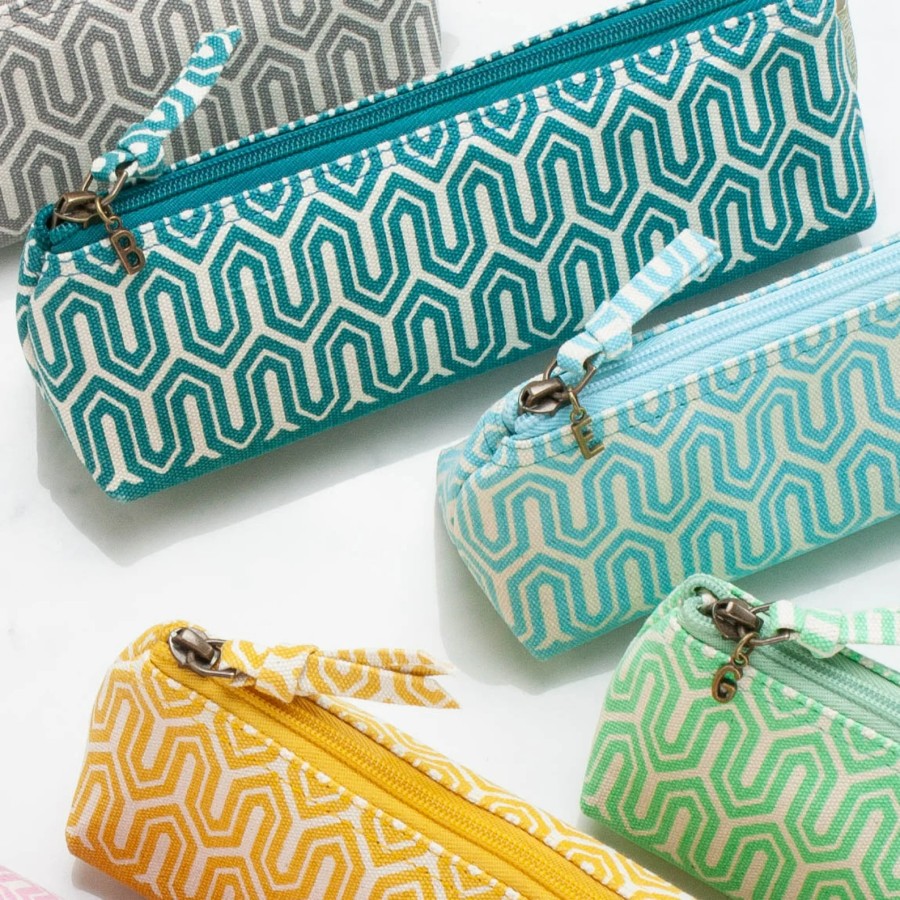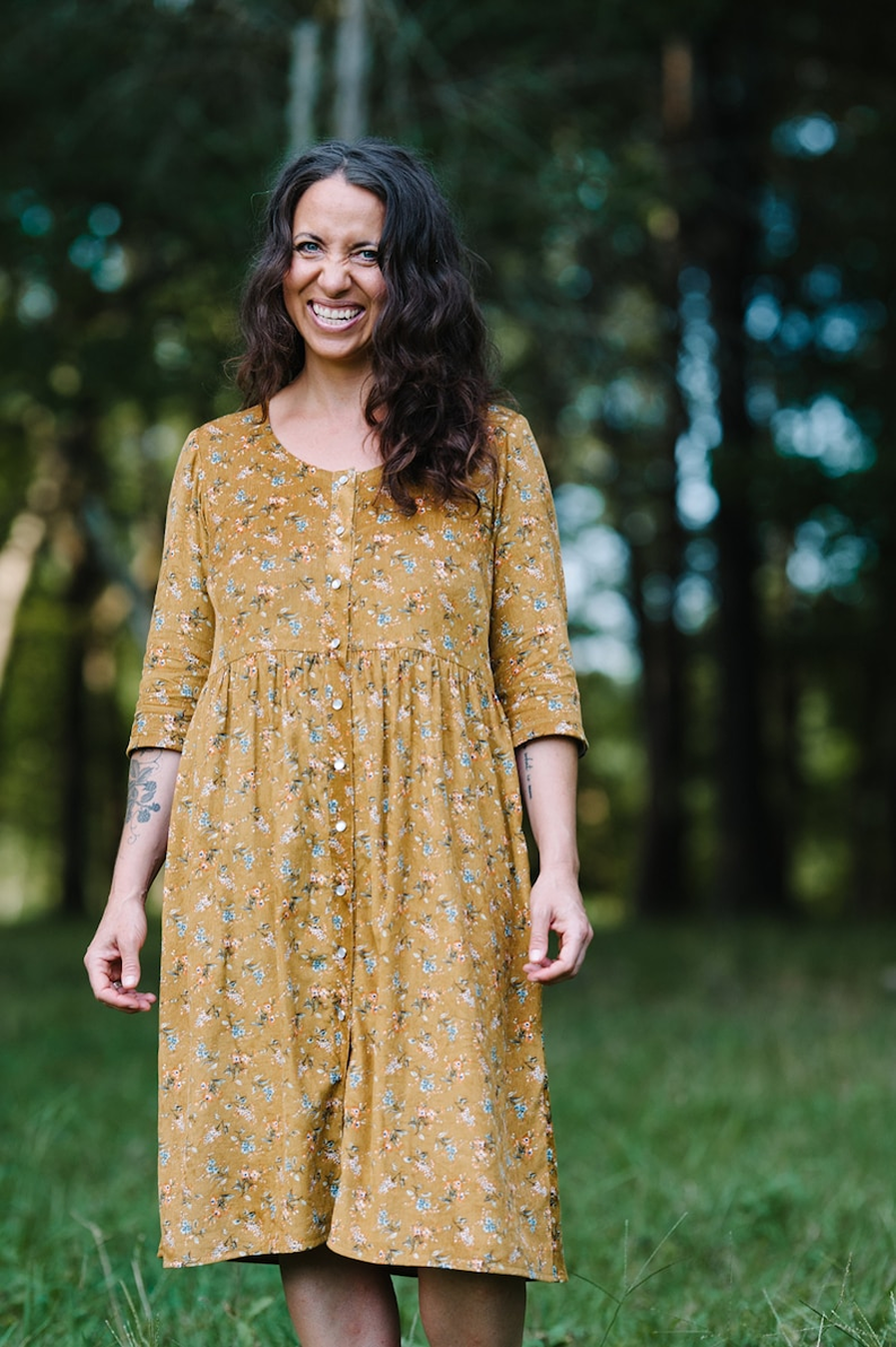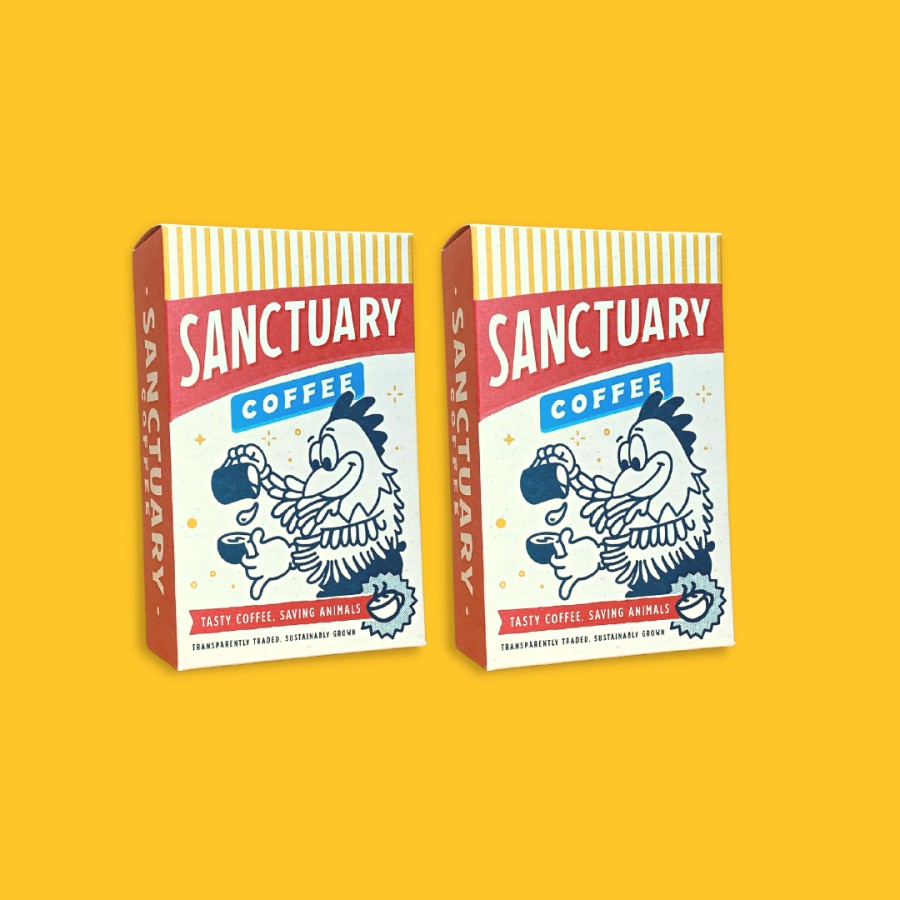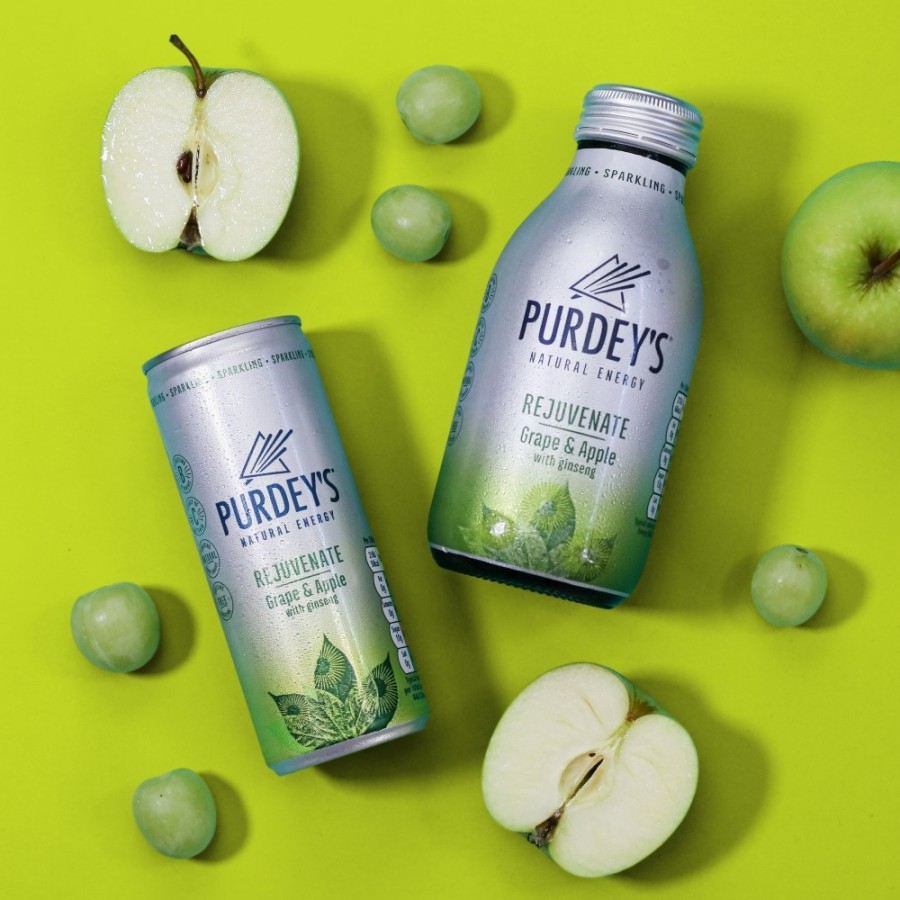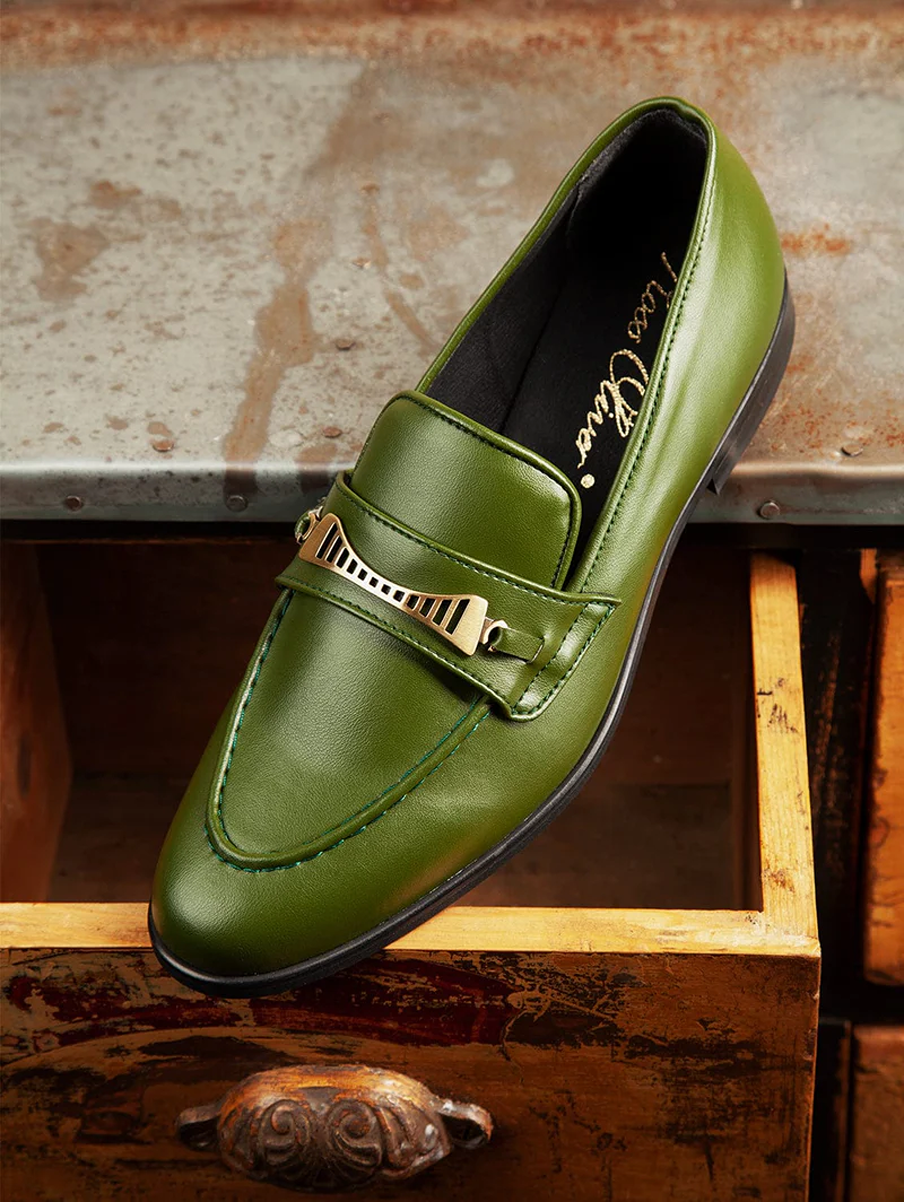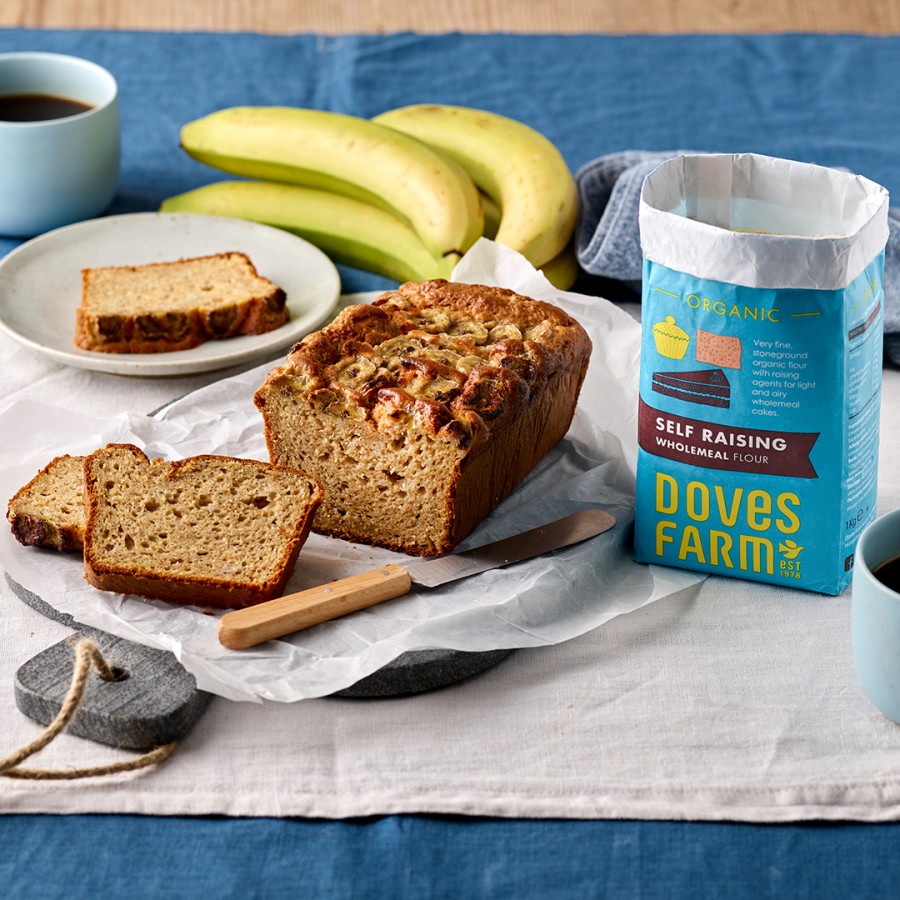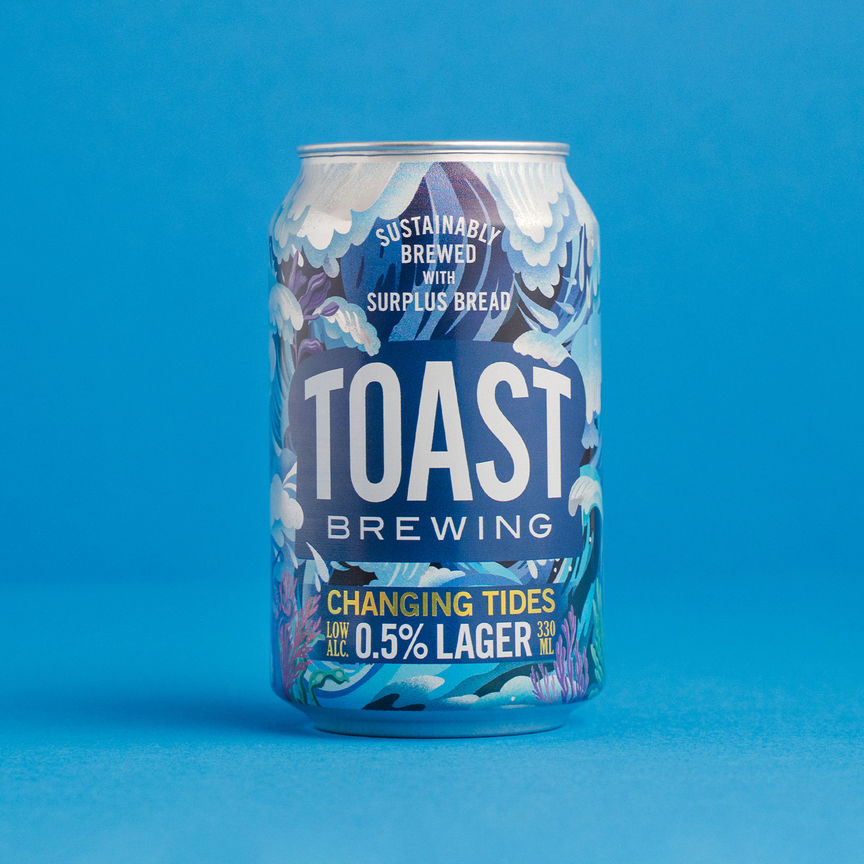
If you can’t get through the day or night without a drink (or hide how much you drink), you have an alcohol addiction. No drink can claim to be 100% alcohol-free (fruit, juice and rye bread all contain a little). But there are drinks that are nearly alcohol-free or lower alcohol. Avoid tonic water for pregnancy/nursing and medical conditions (and avoid grapefruit for some medications).
Toast Brewing offers a low-alcohol version if its unique lager, which replaces part of the brewing yeast with leftover bread, collected from bakeries. this 0.5% craft lager features notes of citrus and spices.
Read more on where to find help for addiction recovery. Unless you need medical help for serious addiction, usually you can gradually reduce alcohol to safe levels (or go teetotal). The Home Detox for Alcohol program was developed by recovering addicts and alcoholics, and offers an alternative to residential care, if you prefer to get better privately (or have to go out to work). Its service uses medically-qualified staff who can recommend you see GPs if you need medication to come off alcohol, if it’s safer to do so.
how much can you drink (and still drive?)
The police say ideally zero, to stop the 200 people killed each year on our roads, due to alcohol-related accidents. The legal limit in Sweden is far tougher and Hungary, Romania, Slovakia and Czech Republic have zero tolerance. It’s difficult to gauge how much alcohol is ‘safe’ because you won’t be doing the maths of calculating units, and it also depends on a person’s sex, height, weight and if a person is dehydrated or taking medication.
If you do drink, the police suggest waiting at least an hour for each unit consumed (time is the only way to rid alcohol from your body – coffee, food or sleep don’t). For example, if you drink 3 pints of lager or one bottle of wine at midnight, you’ll not be ‘sober’ until at least 9am the next morning.
are you drinking too much (and what are units?)
Enter your age, sex and weight at Alcohol Change along with how much you drink, and it will tell you what safe levels are, and if you’re above them. Campaigners want the law to change so that it’s easier to know a ‘unit’ which can get confusing. In a nutshell, experts advise no more than 14 units of alcohol a week (spread over 3 days or more) and obviously none for pregnancy/breastfeeding/driving or affected medical conditions. Know that often ‘home measures’ are more than in the pub, so if in doubt, use glasses with measurements:
- 14 spirit measures (25ml)
- 6 glasses of wine (175ml)
- 6 pints of beer or cider (568ml)
So to clarify, if you drink gin and tonic, that would be no more than 2 glasses a night. Or 1 glass of wine (with a night off). Or 1 pint of beer or cider a night (again with a day off).
If you are over this limit (or wish to reduce), one easy way to do this is simply to switch to alcohol-free or low-alcohol versions, as a lot of alcohol-drinking is simply due to habit. Or just do other things to relax (go for an evening walk, practice yoga, invite friends round for dinner, read a book, take a bath etc).
no-alcohol spirit alternatives
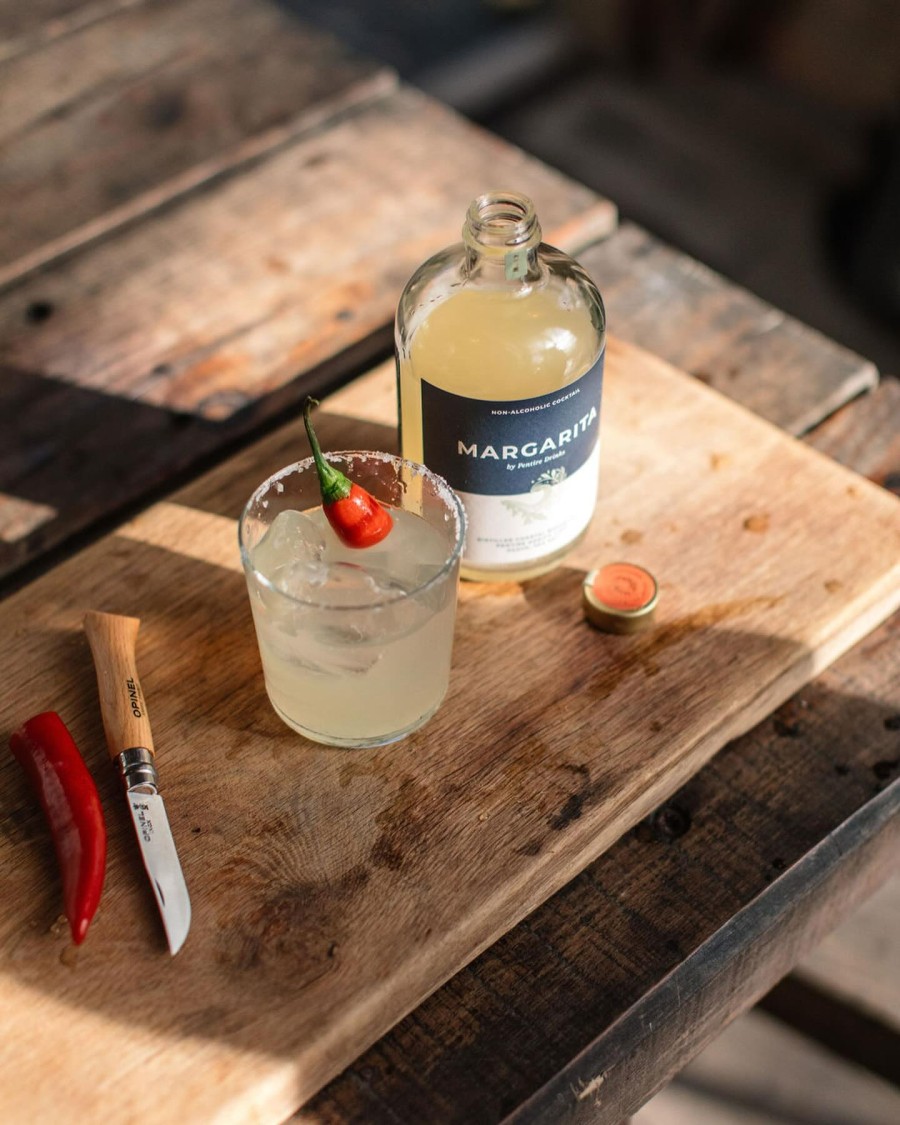
Pentire (Cornwall) is a botanical drink inspired by the coast, made by distilling sage and rock samphire. Ideal served with ice and tonic water, and garnished with lemon and rosemary. Everything is made with local seasonal ingredients and sold in sustainable packaging.
CleanCo offers no alcohol alternatives to gin, whisky, rum, vodka and tequila. This indie brand (founded by Made in Chelsea star Spencer Matthews) invests in flavour geniuses, so the drinks taste like-for-like with alcohol versions. Packed in recycled glass bottles with compostable packaging, Clean W is Halal-suitable and all bar Clean T is Kosher.
Sea Arch (Devon) is a gin alternative made with seaside botanicals, which captures the spirit of the southwest coast, and also sold in a rose raspberry edition. Also sold in ready-to-drink mixer cans.
Caleño (Bristol) is a Latin-inspired tropical drink in light and zesty version (nice with tonic and pineapple) or a dark spicy version (good with ginger ale and lime). Designed for people who like to party, but without the alcohol. This is free from the sickly sweet artificial ingredients in similar brands.
Seedlip (Lincolnshire) make quality gin alternatives, made to recipes formulated 300 years ago by a doctor. Readily available in stores, the range includes Garden (herbs and peas), Grove (bitter orange, blood orange, lemongrass) and Spice (oak, cardamom, bark).
Xachoh are Persian-inspired spirits and the birthplace of the founder’s familiy, where secrets have been handed down through generations to produce two drinks. Blend No 5 features tar anise and Blend No & features ginger root and mace.
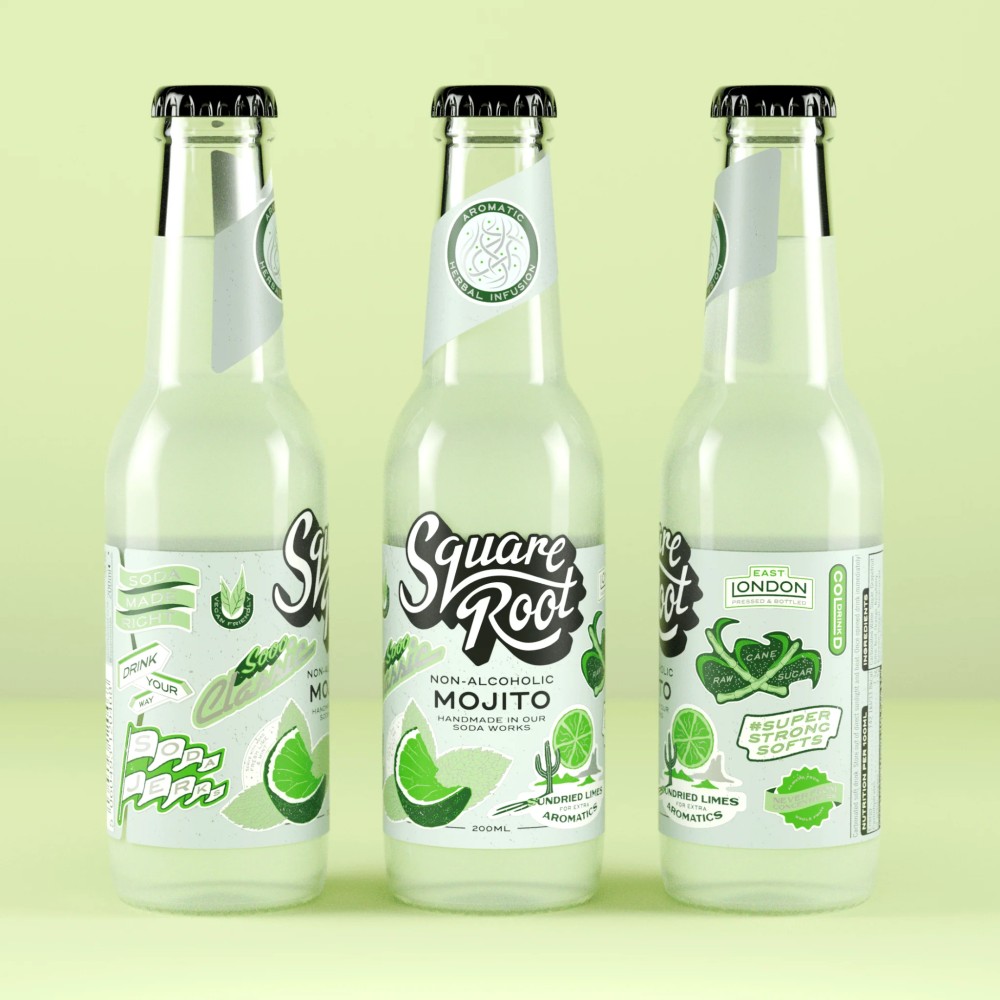
Square Root Soda (East London) offers ready-made no-alcohol tipples. Choose from a classic juniper ‘gin and tonic’, a Cuban Mojito (lime and fresh mint) or an Italian negroni (serve with a slice of orange rind).
no alcohol beer alternatives
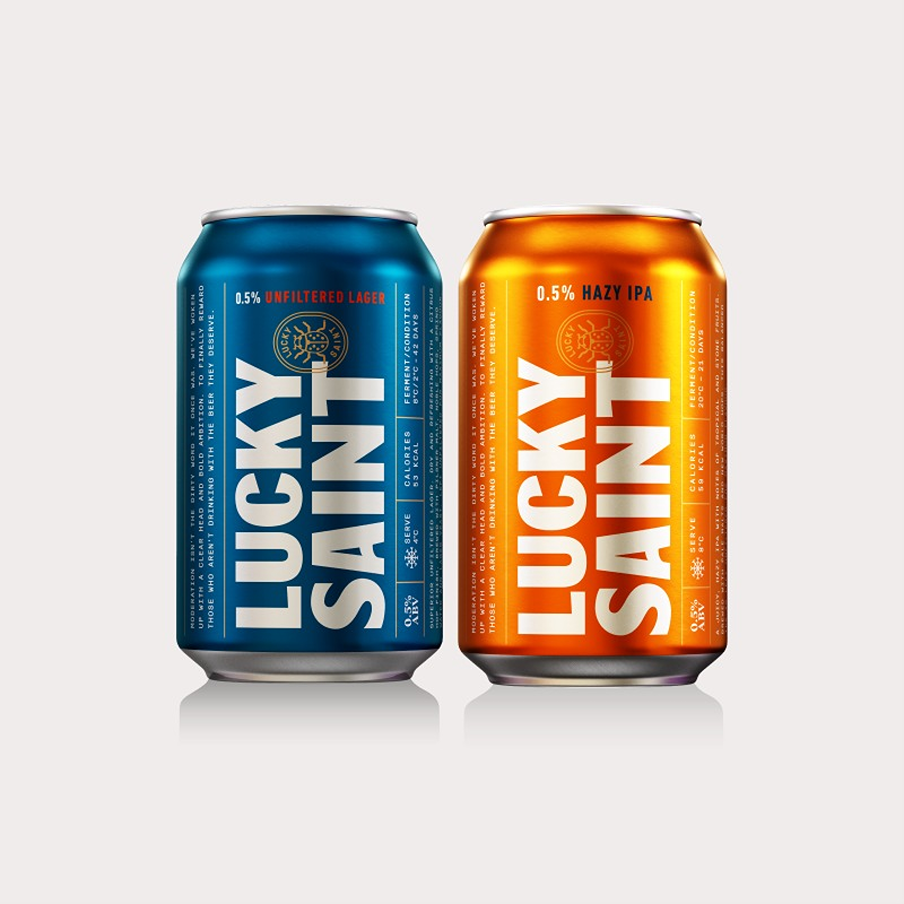
Look for brands in cardboard packaging (avoid plastic rings as they choke and harm wildlife if discarded – rip the holes of any you see, and safely place in the bin). No-alcohol beers also contain far less calories and sugar.
Lucky Saint is available in pubs on draught. Made with 4 ingredients, this German-ionspired beer is not filtered, so flavours are kept from letting the sediment drop from the beer over several weeks. The range includes Superior Hazy IPA with notes of tropical and stone fruits.
Nirvana Brewery (London) was founded by the daughter of a man who gave up alcohol but still liked beer. She now runs the company with her brother (who travelled Germany testing the best beers for inspiration). the range includes a Classic IPA (citrus, pine, spice) Baverian Helles Lager (biscuit notes), Organic Pale Ale (tangerine, spice, toffee) and a dark rich stout (or chocolate porter).
Lo Tide is an indie low-alcohol brewing company, offering a small range. In beautifully-designed cans, these offer innovative alternatives to traditional beers from Pilsners to bitter pale ales, through to west-coast style beers and a chocolate stout.
no-alcohol wine alternatives
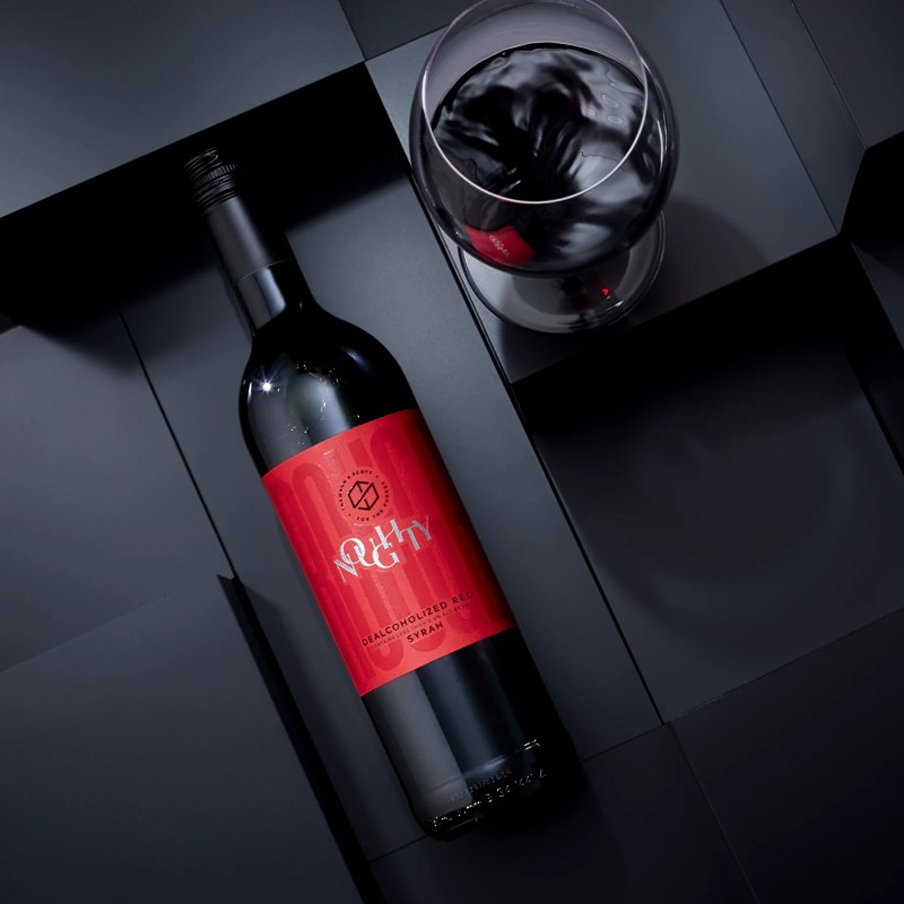
Thomas & Scott Noughty offers a no-alcohol sparkling wine that’s organic and vegan-friendly. It has half the sugar of other brands and just 14 calories per glass, for a hangover free celebration. It also makes a nice no-alcohol red wine.
Bottle Green Elderflower Cordial can be mixed with sparkling water, as a near-identical alternative to a white wine spritzer. Or look in stores for the ready-made presse with Cotswolds water.

